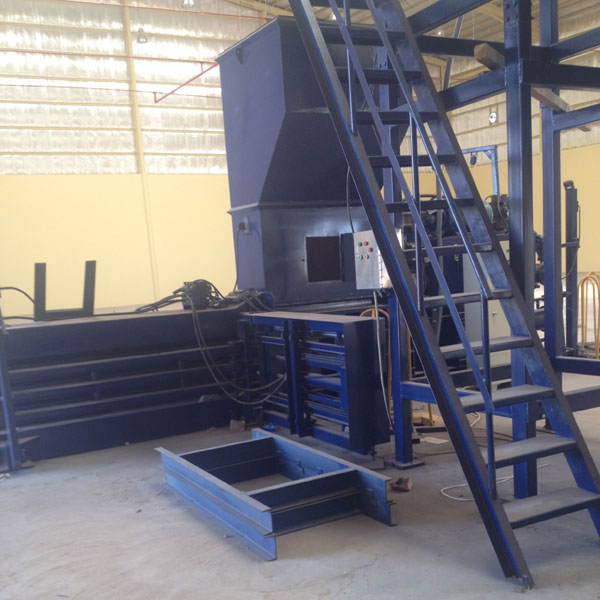“How much does a plastic film baler cost?” This is almost always the primary concern for decision-makers involved in waste film recycling, agricultural film processing, or packaging workshop management. However, the answer isn’t a fixed number, but rather a dynamic range influenced by various factors, much like asking about the price of a car—it needs to be analyzed from multiple dimensions such as configuration, brand, and features.
First, the equipment’s processing capacity and final bale density are the core factors determining the price. Do you need a small recycling station handling lightweight supermarket shopping bags and packaging films, or a large recycling center handling tons of agricultural film and industrial stretch film? For the former, small vertical balers are compact, have lower power, and are relatively economical in terms of investment cost. Large horizontal balers, on the other hand, require more powerful hydraulic systems, stronger steel structures, and larger material bins, naturally increasing manufacturing costs and significantly raising the price.
Second, the level of automation is directly related to labor costs and output efficiency. Semi-automatic equipment requires manual feeding and threading/tying, suitable for intermittent production, with lower initial investment. Fully automatic plastic film baling machines integrate conveyor belts, automatic induction compression, and automatic strapping functions, and can even achieve unmanned operation. Although the purchase cost is higher, it can work 24 hours a day, greatly reducing labor requirements and increasing overall output. From a long-term operational perspective, its return on investment may be more advantageous.

Furthermore, brand premium, core component configuration, and after-sales service are also key components of the price. Well-known brands invest more in R&D and quality control costs for equipment stability, durability, and safety, which constitutes their brand value. Whether the hydraulic pumps, motors, electrical control systems, and PLCs used in the equipment are sourced from top international or domestic suppliers directly determines the equipment’s lifespan and failure rate. Finally, whether the manufacturer provides installation and commissioning, technical training, long-term warranty commitments, and timely spare parts supply—these intangible service values are also included in the final price. Therefore, when inquiring about prices, it is wiser to clearly define your own needs and then request targeted solutions and quotations from multiple suppliers to compare the overall cost-effectiveness.
Nick mechanical hydraulic packaging machine is specially used in the recovery and packaging of loose materials such as waste paper,waste cardboard,carton factory,waste book,waste magazine,plastic film,straw and other loose materials.
https://www.nkbaler.com
Email:Sales@nkbaler.com
WhatsApp:+86 15021631102
Post time: Nov-05-2025